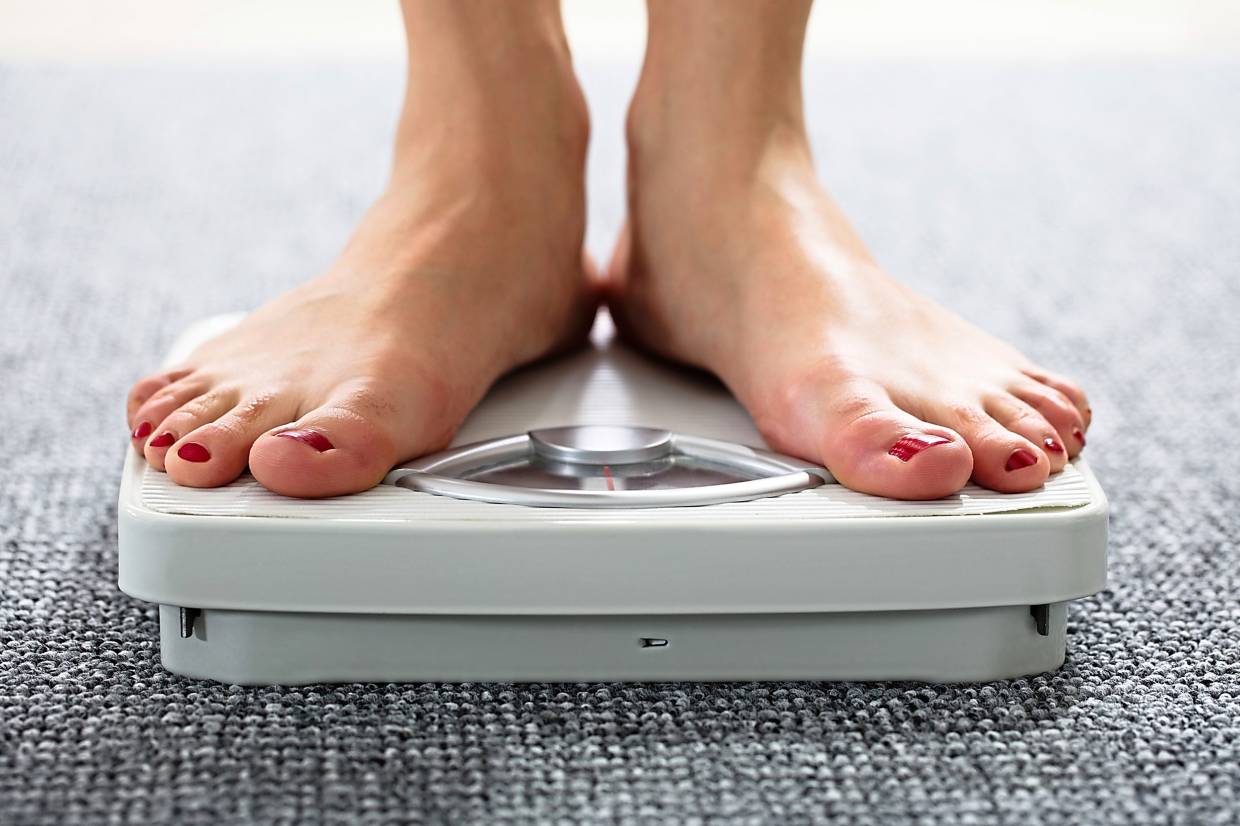5 Weight Loss Tips
5 steps to sustainable weight
Whether you have put on weight during lockdown or you just want to lose a few pounds before the spring, we know that losing weight can be hard.
People who are overweight are also at a higher risk of dying from coronavirus - whether or not they have other health issues. Being obese increases the risk still further.
No matter what your reasons are for wanting to shed some excess pounds, now is a great time to start losing weight. Our Senior Dietitian Victoria Taylor outlines five easy ways to make your weight loss efforts a success.
Whether you have put on weight during lockdown or you just want to lose a few pounds before the spring, we know that losing weight can be hard.
People who are overweight are also at a higher risk of dying from coronavirus - whether or not they have other health issues. Being obese increases the risk still further.
No matter what your reasons are for wanting to shed some excess pounds, now is a great time to start losing weight. Our Senior Dietitian Victoria Taylor outlines five easy ways to make your weight loss efforts a success.
1. 'Why am I overweight?'
Despite what you might read, the problem of obesity isn’t caused by any single food and it’s not just a question of ‘a lack of willpower’. In fact, many factors influence what we eat. Our environment and lifestyles have changed in recent decades which means healthy choices are not always the easiest to make, and we tend to have more ready-made or take-away meals. This usually means more fat, sugar and salt compared with home-cooked meals, and often larger portion sizes too.
At the same time, we’re doing less physical activity than previous generations. Our jobs and leisure activities are more likely to involve sitting down, and we’re less likely to travel on foot or by bicycle. Many of us are also working from home more now, meaning we've lost the opportunity for exercise on the way to work.
By being more active, you can reduce your risk of developing heart and circulatory disease by as much as 35%.
This means we need to make conscious choices about what we eat and how we stay active. Often that means making an effort to eat healthily even when we’re busy, and finding ways to fit exercise into our busy lives.
A good first step is to think about why you might have put on weight. Is this a recent change or a longer-term pattern? Did you start doing something differently – eating out more, being less active, or eating different foods – around the time you began putting on weight?
If you’re not sure where you’re going wrong, try keeping a food and drink diary for a week in a notebook, or record what you eat using a diet tracker app on your smartphone.
- Get 18 tips for healthy meals in a hurry.
2. Set yourself a weight loss target
Losing weight can feel really difficult. To start with, work out how much weight you want to lose. With more people becoming overweight, how we view a ‘healthy weight’ can become skewed.
Your body mass index (BMI) is a measurement of your weight in relation to your height. If you know these measurements, you can use a free online tool to find out your BMI and the weight you should be aiming for. You can use our BMI calculator.
If you weigh more than you think, don’t be disappointed or feel you have to take extreme measures. Break it down into small goals and focus on one step at a time.
If you have a lot of weight to lose, aim to lose 10 per cent of your body weight. This will have big health benefits – even if you are still overweight afterwards – and can feel more achievable. Don’t be disheartened if it’s going to take a long time to get to your ideal weight. It’s not surprising – it probably took a long time to come on gradually.
Losing weight can feel really difficult. To start with, work out how much weight you want to lose. With more people becoming overweight, how we view a ‘healthy weight’ can become skewed.
Your body mass index (BMI) is a measurement of your weight in relation to your height. If you know these measurements, you can use a free online tool to find out your BMI and the weight you should be aiming for. You can use our BMI calculator.
If you weigh more than you think, don’t be disappointed or feel you have to take extreme measures. Break it down into small goals and focus on one step at a time.
If you have a lot of weight to lose, aim to lose 10 per cent of your body weight. This will have big health benefits – even if you are still overweight afterwards – and can feel more achievable. Don’t be disheartened if it’s going to take a long time to get to your ideal weight. It’s not surprising – it probably took a long time to come on gradually.
- Find out why you should know your weight and waist size
3. Make changes that work for your lifestyle
There's no shortage of diets, tools and foods that claim they will help us lose weight. Despite these bewildering choices, the main principle of losing weight is simple: the energy you take in (calories) needs to be less than the energy you use.
Beyond that, which diet works will vary from person to person – one of the biggest factors is finding something you can stick to. The important thing is to find the path that is right for you.
Many people find it helpful not to think about a ‘diet’, but rather an approach you can sustain over the long term, that fits with your lifestyle. Some people find reducing fat or carbohydrates works, some count calories, while others lower their calorie intake on certain days. It’s important your plan is not so restrictive that it cuts out whole food groups, otherwise you could miss out on essential nutrients.
If you live with someone else, getting their support can be vital, so you’re not exposed to the temptation of unhealthy foods at home
Think about what is going to work for you. This means being realistic about your lifestyle – how much you have to spend on food, your cooking skills, and food preferences. To see a lasting impact on your weight, you need to make changes for good, so it is important these are realistic. Small tweaks can feel insignificant, but they gradually add up if you stick to them.
If you live with someone else, getting their support can be vital, so you’re not exposed to the temptation of unhealthy foods at home. Ask them to support you or even lose weight with you.
Group support works well for some people. There is some evidence that joining a slimming group leads to more successful weight loss than those who don’t join. It could be worth talking to your GP or practice nurse, who will be able to tell you if there are local groups you can join or be referred to, and they may be able to offer you other support, too.
A combination of diet changes and getting more active has been shown to be more effective than just changing what you eat, so think about ways to get more active. That might be walking or cycling instead of driving, a home exercise workout, or meeting a friend for a walk or a run. Aim for 150 minutes of activity a week, and break it into 10 minute chunks if it seems like a lot to begin with.
Try not to rely on exercise as your only weight loss strategy: doing more of it without changing your diet will help your heart health, but is unlikely to lead to weight loss.
- Watch our animation to learn about what happens in your body when you exercise.
4. Eat a balanced diet

Reduced-calorie, low-calorie or light versions of your favourite foods may be helpful, but don’t assume this means that they are also low in salt and sugar. So check food labels and try to make healthy choices, not just lower-calorie ones.
Maintaining even a small weight loss is beneficial for your health in the long term and something to be proud of
You don’t need to cut out all foods that are higher in calories – some of them come with healthy nutrients, for example oily fish, unsalted nuts and avocado. But you might want to eat them less often, or limit your portion size.
5. Don't give up if your progress is slow
An ‘ideal’ weight can take a while to achieve and may seem unattainable at times. Don’t feel disheartened if your weight loss is slow or you hit a plateau. Maintaining even a small weight loss is beneficial for your health in the long term and something to be proud of. So keep it up!
- Discover how to keep going when it's hard to lose weight.
- Find out why there's no such thing as the 'British Heart Foundation diet'.
- Learn how to start eating more healthily.






Comments
Post a Comment